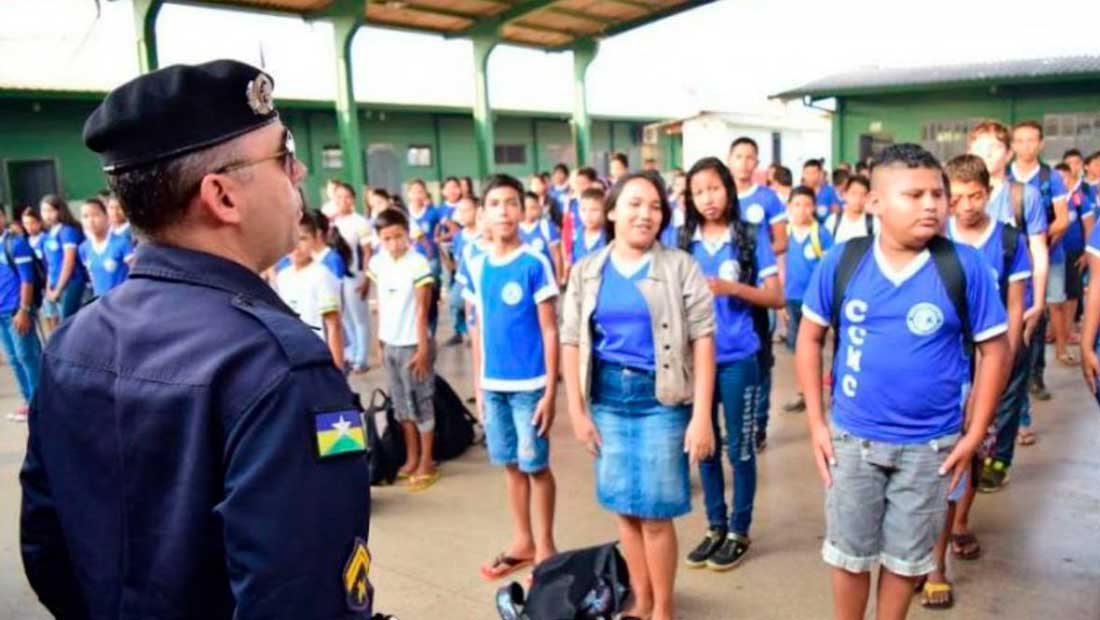RIO DE JANEIRO, BRAZIL – In the interior of São Paulo, state schools met during the week to discuss potential adhesion to the federal government’s civil-military education project.
In the state of Santa Catarina, the government has already shown a positive stance on the introduction of two schools under this model financed by the Union, at least in parts.
However, unlike the South and Southeast of Brazil, no state in the Northeast region has yet shown interest in joining the project. The deadline for the states to join the civil-military model proposed by the federal government ended on Friday, September 27th.

The shared mixed management with civilians and the military will be implemented in 54 schools in 2020. According to the TNH1 survey, so far, no education secretariat has issued a position favorable to accession.
The implementation of civilian-military schools will preferentially take place in regions that are socially vulnerable and have a low Basic Education Development Index (IDEB). Among the program’s principles is the contribution to the improvement of the school environment, reduction of school violence, dropouts and failures.
Among the potential ‘justifications’ for non-accession in some states is the concern of some administrators regarding these institutions’ educational approach, which will be under military management, information that was not clear, according to some Education Secretariats.
The States
In Alagoas, the Secretary of State for Education reported that “the Civil-Military Schools’ agenda is not included in this year’s priorities” and that “the focus has been on implementing the New High School and expanding Comprehensive Education”.
The portfolio said the government has already built a civilian-military school with 12 classrooms in Arapiraca, with a school year started in 2017, and is increasing the availability in this facility. There is another facility in Maceió, the state capitol, managed by the State Police.
In Rio Grande do Norte, the Secretariat of State for Education said it awaits additional information from the Ministry of Education on “the management model and the political and educational project that will be adopted in these Civil-Military Schools”.
“As the deadline is open until today, September 27th, the portfolio is waiting for this position. If it is not sent, the secretariat will request more time from the Ministry to clarify these points and discuss joining the program. This discussion will also be extended to schools,” the secretariat said in a statement.
In Piauí, the government said it is still examining the project in order to decide on joining. It further reported that it currently has a military school, in partnership with the State Police, where only management is military, “with the educational component and all the remainder under the remit of this Secretariat of Education”.

The State of Bahia announced that there was no joining of state schools to the program and that it is also seeking, together with the Ministry of Education, further information “on the educational and financial aspects of the program”.
“Currently, the state school system in Bahia has 1,163 schools and 711 outbuildings, 14 of which are managed by the Bahia State Police which represents 1.2 percent of the school facilities in the system. In relation to the agreements between the State Police and the municipalities, the Secretariat clarifies that the relationship is between both, the Military and the City Councils”, it adds.
The government of Sergipe reported that it did not join at this first moment, but may join later, because currently, its priority is to expand, reorganize and restructure full-time schools. “The accession should occur later when schools will also be selected,” it explained.
The TNH1 also sought the secretariats of the states of Pernambuco, Ceará, Maranhão, and Paraíba, which did not return contact.
Source: TNH1

